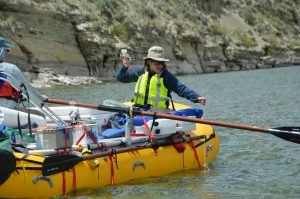The ultimate guide to sustainable tourism practices
Sustainable tourism has been gaining traction in recent years as people become more aware of the impact of travel on the environment and local communities. The traditional model of tourism, which focused on profit and disregarded the environmental and social consequences, is no longer sustainable. As travelers, we have a responsibility to practice sustainable tourism and ensure that our journeys have a positive impact on the places we visit. In this ultimate guide, we will explore the meaning of sustainable tourism and share actionable tips on how to become a responsible and conscious traveler.
The definition of sustainable tourism
Sustainable tourism can be defined as “tourism that takes full account of its current and future economic, social and environmental impacts, addressing the needs of visitors, the industry, the environment, and host communities” (World Tourism Organization). It aims to reduce the negative impact of tourism while promoting economic growth, social justice, and environmental protection. In other words, sustainable tourism seeks to maintain a balance between the three pillars of sustainability – economic, social, and environmental – to ensure a positive and long-lasting impact on the destination.
The importance of sustainable tourism
Sustainable tourism is crucial for the well-being of both travelers and local communities. By practicing sustainable tourism, we can preserve the environment, protect cultural heritage, and contribute to the economic development of the destination. It also promotes responsible behavior and aims to create a positive exchange between travelers and locals, allowing for cultural exchange and mutual learning.
Sustainable tourism practices to follow
1. Choose sustainable accommodations
One of the first things to consider when practicing sustainable tourism is the type of accommodations you will be staying at. Look for eco-friendly options such as eco-lodges, which are designed to have minimal impact on the environment. Alternatively, choose locally-owned and operated accommodation to support the local economy and directly benefit the community.
2. Respect the local culture
Every destination has its own unique culture and customs. It is important to respect and learn about them before visiting. Dress appropriately, consume local food and products, and engage with the local community in a respectful and mindful manner. By respecting the local culture, you can help preserve it and contribute to its sustainability.
3. Reduce your carbon footprint
One of the biggest environmental impacts of tourism is carbon emissions from transportation. To reduce your carbon footprint, opt for eco-friendly modes of transportation such as cycling, walking, or using public transportation whenever possible. If you must fly, consider purchasing carbon offsets to neutralize your impact.
4. Support sustainable activities
When planning your itinerary, choose activities and tours that have a positive impact on the destination. Avoid activities that exploit animals or damage the environment, and instead, opt for responsible and sustainable tours that support local communities and conservation efforts.
5. Practice responsible waste management
The increase in tourism has led to a rise in waste production in many destinations. As travelers, we can make a difference by reducing our waste and properly disposing of it. Avoid using single-use plastic, bring a reusable water bottle, and properly recycle or dispose of any waste you produce.
6. Educate yourself and others
The more we know about sustainable tourism, the better equipped we are to practice it. Educate yourself about the local culture, environment, and community before your trip. Share your knowledge and experiences with others, and encourage them to practice sustainable tourism as well. By creating a ripple effect, we can contribute to a more sustainable future for travel.
In conclusion
Sustainable tourism is a responsibility that we should all take seriously. By practicing sustainable tourism, we can help preserve the environment, protect local communities, and promote responsible and conscious travel. It is up to us as travelers to make a positive impact and ensure that our journeys leave a lasting positive legacy.











